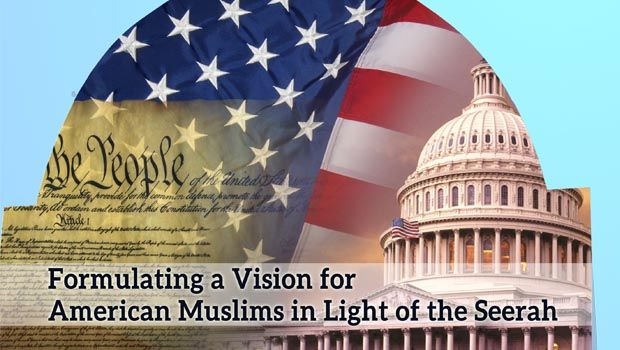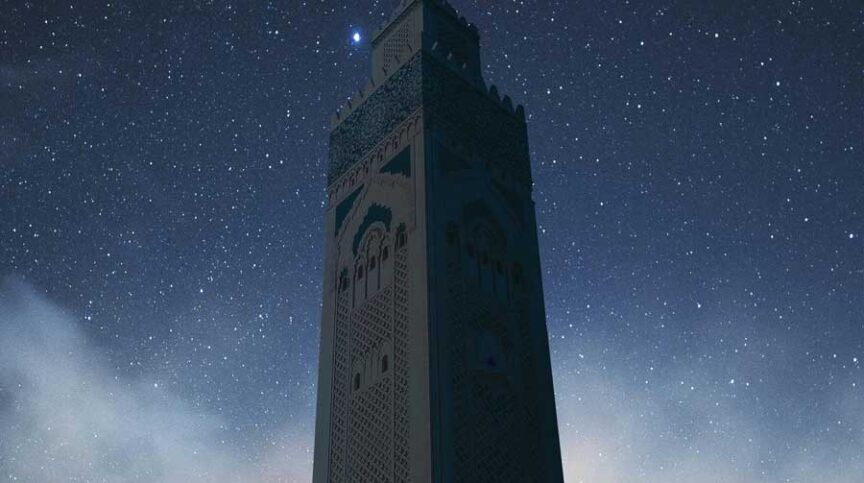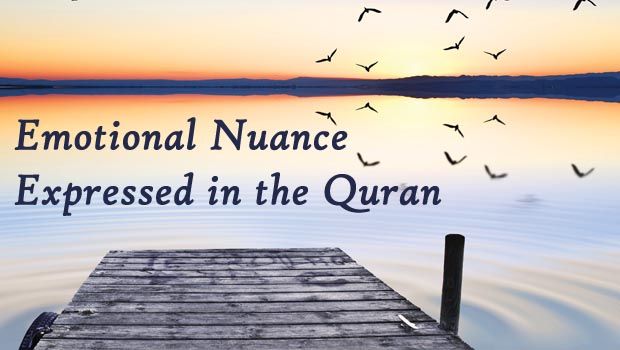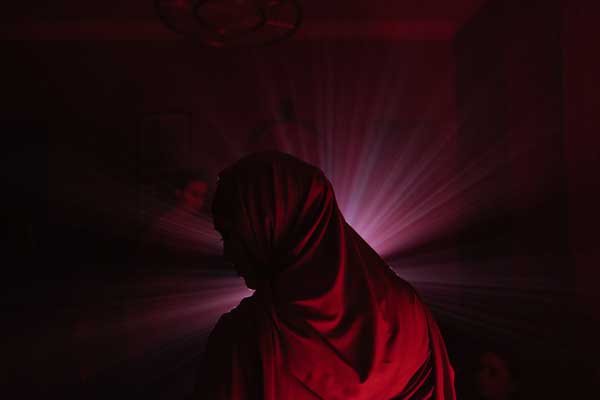During the 23 years of prophethood, the Messenger of Allah, Muhammad (peace be upon him), passed through various stages of challenges until he returned to Allah SWT. Each of these stages shed light and provided guidance for humanity as a whole and, in particular, for the believers. Even though it spanned just a little over two decades, the seerah is vast and in this article only a few aspects will be addressed.
His Message for All Times
The Prophet (pbuh) was a sincere and contemplative man, in the habit of retreating to a nearby mountaintop to reflect, where on one occasion he got his first revelation. But by the time he performed the Hajj, the number of Muslims who joined him was well over 100,000. Fast forwarding to today, 1436 AH/2015 CE, Muslims are now 1.8 billion, or 25 percent, of the total world population. How did this come to pass? And how does Prophet Muhammad’s seerah shine the light of truth and wisdom right through until our current times?
We read in the Quran, “[Allah sent] a Messenger [Muhammad], reciting to you the clear verses of Allah that He may bring those who believe and do righteous deeds out from darkness into the light. And whoever believes in Allah and does righteousness – He will admit him into gardens beneath which rivers flow to abide therein forever. Allah will have granted him a most excellent provision” (65:11). From this verse we can understand that this message was not meant for the Prophet’s time alone but for all times and all places, given the tenses used in the verses. Several forms of the present tense are used. In Arabic, the present tense has three forms or moods: indicative mood – yatlu, he recites; subjunctive mood or expectation and purpose — li yukhirja, that He may bring out; and jussive or conditional — yu’min, ya’mal, yudkhil, whoever believes and does good deeds, shall enter. All these moods of the present tense are used in this verse which indicates that it is a continuous process until the Day of Judgment. So since the Prophet (pbuh) is the last Messenger sent by Allah SWT, his seerah and example are applicable to all the believers throughout the ages.
The Makkan Society and Hostility to Dawah
We can draw many lessons from how the Prophet (pbuh), preached his message in a very hostile environment. The Makkan society was filled with the darkness of jahiliyyah (ignorance), resulting in so many religious, social, economic, and political injustices. Bloody battles between tribes lasted for years and animosity was passed on from one generation to another. Female infants were often buried alive, alcoholism was rampant, and in the absence of a central authority the only power was “might makes right.” These societal maladies used to anguish the Prophet (pbuh) and he would withdraw himself to the Cave of Heraa and reflect about how to change the immoral and unjust conditions that prevailed. Little did he realize that he would be the one chosen to change not only the Makkan society but the entire world till the end of time.
During one of these occasions of contemplation, Angel Gabriel came to the Prophet in the cave of Heraa and said to him, “Read in the name of your Lord who created, created man from a clinging substance.” If we look a little deeper beyond the usual story-telling of the first revelation, we can understand something remarkable: When we think we cannot do something because of our inability, in fact, it can be done by the power of Allah SWT who created everything. It is He SWT who created us from a powerless clinging substance and it is by His power that things we may think cannot be done, can be done.
When Prophet Moses (pbuh) was commissioned by Allah SWT to go to Pharaoh and deliver the message for him to cease committing injustices and worship the One God, he became afraid. The Quran tells us, “He [Moses] said, ‘My Lord, indeed I fear that they will deny me, and that my breast will tighten and my tongue will not be fluent, so send for Aaron [to help me]. And they keep a grave charge against me [the murder of an Egyptian], so I fear that they will kill me” (Quran 26:12-13). He wanted his brother Aaron to go with him, and in 20:45 we are told that both prophets, Moses and Aaron, said, “Our Lord, indeed we are afraid that he [Pharaoh] will hasten [punishment] against us or that he will transgress.” But Allah SWT assures them that Pharaoh’s power is nothing in the sight of Allah SWT and He says to them, “Fear not. Indeed, I am with you both; I hear and I see [all]” (Quran 20:46). Very often it is our fear that prevents us from identifying ourselves as Muslims and inviting others to the way of Allah SWT. Our fears have become our greatest impediment in spreading the message of Islam. We are afraid that the people may say negative things about us. We are afraid that we may lose our jobs. We are simply afraid.
Going back to the seerah of the Prophet (pbuh), we learn that each time Angel Gabriel said to the Prophet (pbuh), “Read!” His reply was, “I cannot read.” Then he recited the first five verses of revelation, “Read in the name of your Lord who created, created man from a clinging substance. Read, and your Lord is the most Generous, Who taught by the pen, taught man that which he knew not” (Quran 96:1-5). The Prophet went home feeling trepidation about what had taken place in the cave of Heraa, but Khadija, his beloved wife, may Allah be pleased with her, assured him that he must indeed be the one chosen to be God’s Messenger. She alleviated his fears and reminded him of his noblest qualities, saying, “Nay! But receive the good tidings! By Allah, Allah will never disgrace you, for by Allah, you keep good relations with your kith and kin, speak the truth, help the poor and the destitute, entertain your guests generously, and assist those who are stricken with calamities.” These comforting words ushered Muhammad into prophethood.
The Resistance to Truth
With the first revelation from Allah SWT, Muhammad (pbuh) began his call to Islam, and one by one people joined the movement. In the beginning there was resistance by many, as the Quraish did not want to give up the status-quo and the power they wielded over the people. The power that the Prophet was striving to establish, on the other hand, was not a power to rule over others and oppress them. The mission had no design to invade and conquer other peoples. His intent was to free men so that they can truly worship their Lord. As Rabea bin Amir said to Rustum, “Allah Almighty has sent us to bring anyone who wishes, from servitude to men into the servitude of the Lord of men, from the narrowness of this world into the vastness of this world and the Hereafter, and from the tyranny of false beliefs into the justice of Islam.” Allah raised a Messenger for this purpose, to teach humanity the way to genuine freedom.
The first thirteen years of the Prophet’s mission faced every sort of obstruction and hostility from the Quraish elites, and after his migration to Madinah, the hostility enlarged and intensified. In the beginning of his mission, he began his dawah with those in his own home, and then moved to those beyond who were closest to him. Khadijah, the Mother of Believers, was the first to enter the fold of Islam, followed by the Prophet’s freed slave, Zaid bin Harithah. Then came his cousin, Ali bin Abi Talib, and then his closest friend, Abu Bakr. Dear brothers and sisters, this is a lesson we tend to forget. Very often we want to change the world but our inner selves are neglected and our homes are neglected. How about our friends? Can we truly say that we have impacted the lives of our closest friends, helping to bring greater light of Allah’s grace and mercy to their souls?
Through the efforts of the Prophet’s dear friend, Abu Bakr, a number of people from various tribes of the Quraish accepted the call. These were known as the early converts such as Uthman bin Affan Al-Umawi, Az-Zubair bin Awwam Al-Asadi, Abdur Rahman bin Awf, Sad bin Abi Waqqas, and others. Later on these early converts became the giants of Islam and many of them were known as the “Al-Asharah Al-Mubasharah,” the ten who are granted Paradise. During this phase, the Muslims were busy learning their new faith and trying to practice the tenets taught to them. They were mainly strengthening their inner selves spiritually so that they could face any challenges they might encounter. They were able by Allah’s grace to overcome their egos and not be driven by the lower self. Today, unfortunately, it is the opposite, with far too many indulging their base impulses and neglecting the commands of Allah SWT.
After this first group of converts, who were fairly well-to-do Makkans, came another group of converts from the lowest socio-economic class in Makkan society. They were mainly slaves and those who had no relatives or tribes that would protect them. The head amongst this group was Bilal bin Rabah (the Abyssinian), then Khabbab bin Al-Aratt, Abdullah bin Masud Al-Hudhali, and Yasir and his wife Sumayyah, both of whom were soon martyred. Sumayyah (may Allah be pleased with her), the first person to be martyred, along with Khadijah, the wife of the Prophet (may Allah be pleased with her as well) who was the first to accept the message, symbolize the dedication and sacrifice of our sisters in the beginning of Islam. May Allah SWT grant them Jannatul Firdous, the highest Paradise.
Resistance Can Come from One’s Relatives
For three years the Prophet’s mission kept a low profile but the Quraish knew something new was in the making. But because it did not challenge their tyrannical rule and unjust practices, the Quraish did not seem to bother too much. Then Allah SWT revealed to the Prophet (pbuh): “And warn, [O Muhammad], your closest kindred” (Quran 26:214). The Prophet gathered all his relatives at Mount Safa and invited them to Islam. He called out, “O Bani Fihr! O Bani Adi. You see, if I were to tell you that there were some army in the valley planning to raid you, will you believe me?” They said, “Yes, we have never experienced any lie from you.” He said, “I am a warner to you before a severe torment.” At this, Abu Lahab promptly replied, “Perish you all the day! Have you summoned us for such a thing?” The following verses were then immediately revealed on that occasion: “Perish the two hands of Abi Lahab…” (Quran 111:1).
How many countless individuals, from the time of the Prophet until today, were quick to dismiss or mock the man, Muhammad, until they got to know about him and his mission? Then they found themselves overjoyed to pronounce their testimony of faith.
In another narration, Abu Hurairah (may Allah be pleased with him) said, “When the following verses were revealed, ‘And warn [O Muhammad] your closest kindred,’ The Messenger of Allah called all the people of Quraish; so they gathered and he gave them a general warning. Then he made a particular reference to certain tribes, and said: ‘O people of the Quraish! Save yourselves from the Fire! I have no power to prevent harm or bring benefit to you before Allah! O people of Banu Abd Manaf! Save yourselves from the Fire! I have no power to prevent harm or bring benefit to you before Allah! O people of Banu Qusayy! Save yourselves from the Fire! I have no power to prevent harm or bring benefit to you! O people of Banu Abdul-Muttalib! Save yourselves from the Fire! I have no power to prevent harm or bring benefit to you! O Fatimah bint Muhammad! Save yourself from the Fire! I have no power to prevent harm or bring benefit to you before Allah! All you have is the kind relations that shall come of it.’” The guidance and benefit we gain from this aspect of the seerah is the responsibility we have with our own immediate relatives before going to others. There is much psychological, social, and moral benefit in that. When members of our families are involved in Islamic work, by the light of Islam the attitudes, actions, discussions, and resources are channeled in a discerning and virtuous way. And there is a mutual motivating and support among family members in their efforts to practice and spread the deen.
The message of Islam then reached every home in Makkah and with that, hostility grew. But despite the persecution, the Muslims stood firm in their faith. The Prophet (pbuh) then commenced discrediting the superstitious practices of idolatry. He pointed out the utter powerlessness of the idols and gave proofs, one after another, that the idolatrous beliefs of the Quraish were manifestly false. The Makkans, in response, were outraged and began mocking the Prophet at every possible opportunity. They physically harassed him such as the time Uqbah bin Al-Mueet dumped camel intestines on him while he was praying at the Kaabah. The Muslims who were slaves were tortured, some were killed, and others were too afraid to let their masters know that they had become Muslims. Their sacrifices inspire us.
The Story of Bilal
One of those who was tortured and remained firm in his faith was Bilal, an Abyssinian slave (may Allah be pleased with him). After his master, Umayyah bin Al- Khalaf, learned that Bilal had accepted Islam, he would take him out in the heat of the fiery desert and strip his shirt off and place a heavy stone on his chest, and say to him, “Now give up this Islam and worship this idol.” Bilal could hardly breathe due to the heavy stone on his stomach, and would faintly say, “Ahad! Ahad!” (One God). Sometimes a rope was put around his neck and street boys were made to drag him through the streets of Makkah. At times he was subjected to prolonged deprivation of food and drink. All this proved in vain. He persisted in his belief in the Oneness of Allah. On one occasion, Abu Bakr was passing by and moved by pity, he purchased and freed Bilal from slavery. This same helpless Bilal, within a decade, would stand on top of the Kaabah proclaiming the adhan (call to prayer) with his beautiful voice, as he was chosen by the Prophet (pbuh) to be the muezzin. What an honor!
Resources and Dawah
Another aspect of the seerah that we can use to formulate a vision for us here in the U.S. is the issue of resources. Often we mistakenly think that we must have a lot of resources, and particularly financial resources, in order to do dawah work. But when we look at the seerah, we find that most of the time the Prophet and the sahaabah (companions) barely had enough to eat. Some of the sahaabah (RA) could only afford to donate one handful of dates to help the Islamic cause. Sometimes the munafiqoon (hypocrites) used to mock them for donating so little, but Allah SWT responded, “Those who slander such of the believers as give to charity freely — as well as those who can find nothing to give except the fruits of their labor — and throw ridicule on them, Allah will throw back their ridicule on them: and they shall have a grievous penalty” (Quran 9:79).
Even in the last moments of his life, after having triumphed over those who opposed and fought him, the Prophet (pbuh) had scant material possessions. The last morning prior to his departure from this world, he asked Aisha (RA) how much money he had and she said seven silver coins. He then told her to distribute it to the poor and needy. But seeing his state of illness, going in and out of consciousness, she did not immediately distribute the seven dirhams. When he regained consciousness, the first thing he asked her was whether she had distributed the money to the poor. So at that point she did and he died without leaving a penny. In fact, richness is not how much we leave to our heirs; richness is what we leave of our good deeds that live on long after we depart this world. As Imam Shafee said, “Some people have died but their generosity lives on. And some people, even though alive, are considered dead” (because of their lack of generosity and good deeds).
Character of the Prophet (pbuh) and Dawah
One of the greatest lessons from the seerah for our times is the character of the Prophet (pbuh). Even before his prophethood, he was known as as-sadiq al-ameen (the truthful, the trust-worthy). If only Muslims in America were to exemplify the character of the Prophet, it would be sufficient for conveying the message of Islam. So lofty were his manners that Allah SWT described him in the following ways:
Regarding the truthfulness of his tongue: “He does not speak from [his own] inclination. It is no less than inspiration sent down to him” (Quran 53:3-4);
Regarding the truthfulness of his eyes: “The sight [of the Prophet] did not swerve, nor did it transgress [its limit]” (Quran 53:17);
Regarding the truthfulness of his heart: “The [Prophet’s] heart did not lie [about] what it saw” (Quran 53:11);
Regarding his noble character: “And indeed, you [Muhammad] are of a great moral character (Quran 68:4).
Regarding his mercy in dawah: “And We have not sent you, [O Muhammad], except as a mercy to the worlds” (Quran 21:107);
Regarding his concern for human
beings: “There has certainly come to you a Messenger from among yourselves. Grievous to him is what you suffer; [he is] concerned about you, and to the believers is kind and merciful” (Quran 9:128);
Regarding the nobleness of the Prophet’s life, as shown by Allah SWT taking an oath by it: “By your life, [O Muhammad], indeed they were, in their intoxication, wandering blindly” (Quran 15:72).
When Individuals Defame the Prophet: Opportunity for Dawah
Today there are many who try to defame the Prophet (pbuh), mocking and falsely accusing him. In the Prophet’s time, the disbelievers did the same, but little did they realize that their negative propaganda actually helped the Prophet to spread the message of Islam. In the beginning of his mission, the Prophet (pbuh) was without his society’s support and his followers were not more than fifteen. In fact, not more than 115 people accepted Islam in the first thirteen years of the Prophet’s mission. At that time there was no Hassan bin Thabit, the great Muslim poet, who could have used his poetry to call to Islam. Bilal, as we already mentioned, was bound and beaten repeatedly. Khabbab was tortured. Sumayyah and her husband Yasir were brutally martyred. The few prominent Muslims such as Abu Bakr and Uthman were ostracized by the society. In addition, anyone who came to Makkah was stopped at the main entryway to the city and asked why they were coming to Makkah. Then they were warned about a man named Muhammad, told that he was dangerous and that they should not listen to him. One such person visiting Makkah was Tufail bin Amr Ad Dawsi, the chief of the Daws tribe from Yemen. He had come to the city to take care of some business and he had no intention of taking the time to meet or listen to what this man, Muhammad, had to say. The Quraish told him that Muhammad was a fortune-teller, a magician, and could easily confuse or mesmerize those who listened to him. So he stuffed cotton in his ears and as he approached the Kaabah he saw the Prophet (pbuh) praying. He took note of his bodily movements during the prayer, and the humbleness, simplicity, and tranquility that seemed to surround him. Tufail could not reconcile what he observed with the characterization of the man as someone delusional or possessed. So he went to the Prophet and asked him if he were a madman. The Prophet (pbuh) did not react in a defensive way, did not try to salvage his reputation by saying he was from a noble tribe, and he did not try to persuade Tufail that he was sane and that his detractors were just trying to defame him.
Instead, he recited portions of The Quran, allowing the powerful words of Allah SWT say it all. And then Tufail, on the spot, embraced Islam. He went back and the tribe of Daws became Muslim. This illustrates that those who try to defame the Prophet (pbuh) might find their propaganda backfiring on them. They plot but Allah SWT is the best plotter. So even though we feel upset and hurt when we hear people mocking and making false accusations against the Prophet, we ought to realize that this brings the hearts of Muslims closer to the Prophet; and many individuals, like Tufail, who never heard of the Prophet, are curious and begin to explore Islam and find out that Muhammad (pbuh) is the final Messenger sent by Allah SWT for humanity. How many countless individuals, from the time of the Prophet until today, were quick to dismiss or mock the man, Muhammad, until they got to know about him and his mission? Then they found themselves overjoyed to pronounce their testimony of faith: “I bear witness that there is no god worthy of worship except Allah; and I bear witness that Muhammad is His servant and messenger.”





